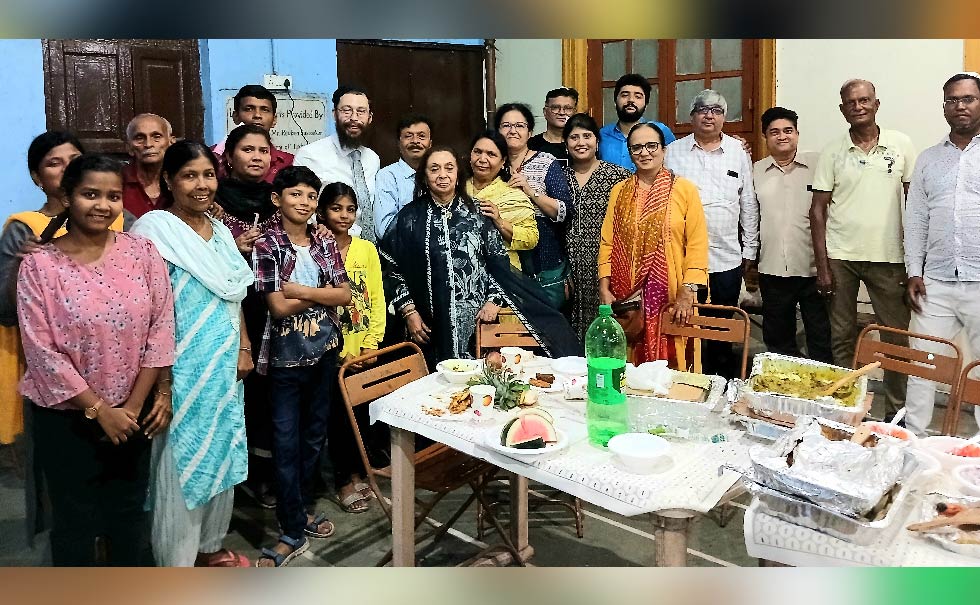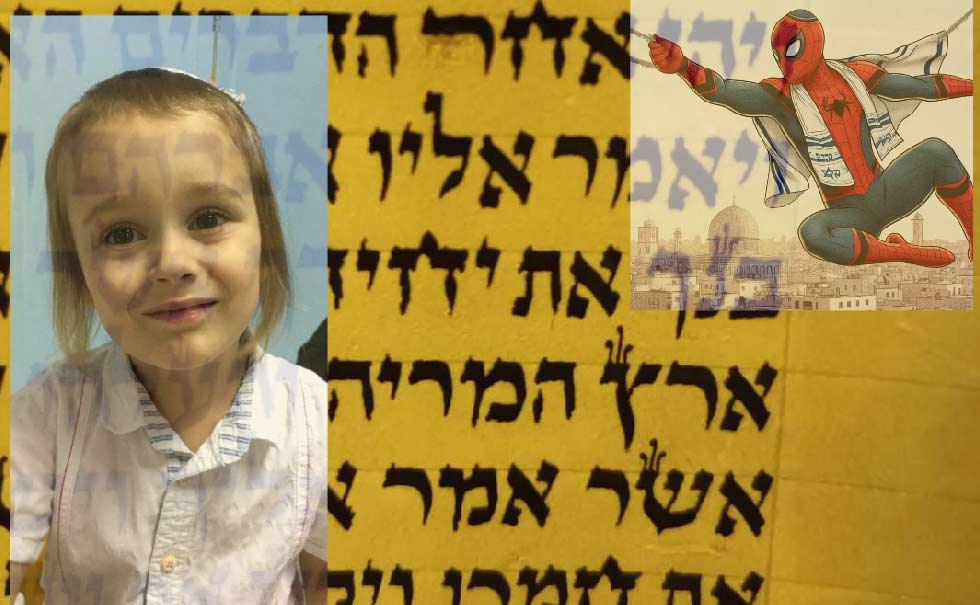The Bostoner Rebbe at the ICU
I had reached a very low and difficult place in my life, following the fallout from the end of my first marriage I found myself in a downward spiral and admittedly without much direction. My Rabbi and friends looked for possibilities for me and an opportunity opened to become the Gabbai of the Bostoner Rebbe: Rabbi Mayer Alter Horowitz, I jumped at the chance and took the position; the job entailed shadowing the Rebbe and helping him in a variety of different areas of his work with the Chassidic community in Har Nof and in other areas of Israel. The daily schedule was highly changeable and interesting, aside from dictating writing letters and accompanying the Rebbe on his different journeys and appointments I was also granted my own time studying in Kollel and pursuing my musical and poetry career on the side.
On November 18th 2014, The day started out normally, the Rebbe awoke early and attended his prayers as well as attending his learning and teaching schedule, there was suddenly a great deal of commotion and we heard sirens sounding throughout the neighborhood, it was not long after that we heard that at approximately 7:00am there was an attack on the Kehillat Yaakov synagogue on Harav Shimon Agassi Street, 4 worshippers were murdered as well as a brave Druze police officer, 7 were seriously injured (one of which would pass some 11 months later) including 2 policemen who attended the situation. There was immediately a large presence of Israeli soldiers and military presence as well as police, ambulances, and other emergency services throughout Har Nof. Precise news and information were not available for some time and it was only from various private individuals and phone calls to the Rebbe that the gravity of the situation became revealed and we broke from our normal studies at the Kollel to attend a moment of silence as well as reading Tehillim for the wounded.
In Israel, at this time terror attacks were unfortunately commonplace, and they simply could not prevent the rest of the day from occurring and to an extent the country had accepted the attacks as part of the norm and resolved to continue to live, work and exist despite them. The day already held a variety of meetings, appointments and planned events for the community and the Rebbe continued with his schedule.
The next day towards evening I received a call from the Rebbe, “Yonason, please get your guitar and be ready to leave in ten minutes”, I was at the time a little puzzled, the Rebbe had taken an interest in my musical aspirations but it had been limited to brief discussions about it, I had never played before the Rebbe and it seemed like a daunting idea since I was mostly playing rock and jazz and my knowledge and interest of “Jewish music” was at best basic. I stepped outside to find the car pulling up outside the small apartment next to the main synagogue, the Rebbe sat in his usual position in the front of the car and in the back was a friendly looking Chassidic man holding a violin case, the Rebbe was engrossed in reading Tehillim and other books (as he maximized his time when travelling) and I asked the musician where we were going, he smiled and explained that he had not asked. The journey continued for some time and my assumption that we were likely headed to a banquet hall used for weddings on the outskirts of Jerusalem was proven wrong.
We arrived at the hospital and the Rebbe asked the driver to park and that he would call him when finished, we headed through the main doors and proceeded down the hall and to the elevator, it seemed that the Rebbe instinctively knew the layout of the place as he did not ask for directions, we arrived at the ICU and I realized that the staff clearly understood that he would be arriving, laid out for us were disposable gowns, PPE and surgical masks. The Rebbe had still not explained himself or the protocols of whatever the situation we were dealing with was, the staff gave us a small corner of the office to store our instrument cases and we entered the ICU, the main room was guarded by two IDF soldiers and I very quickly began to understand why, the survivors of the attack at the synagogue were here with family mostly in a comatic state holding onto life with breathing apparatus and other life-support machines.
The Rebbe turned to us and said “play!” I turned to the violinist whose expression I imagine probably was quite like my own, what were we expected to play? As if by inspiration the Rebbe explained “play something happy, upbeat” I began to strum a chord and the violinist took my lead and launched into a familiar wedding styled tune, the Rebbe took the hand of one of the victims and began to slowly and gently dance beside him singing the words of the melody – keeping the chord changes basic and stable the other musician moved through different Niggunim, after some time the Rebbe suddenly held up his hand and we understood to stop playing, the room immediately plunged back into the non-silence of the life-support machines.
The Rebbe then addressed the victims, telling them how precious they were, pleading with them to hold onto life and extolling the reward set aside for those martyred amongst our people. It was clear that the words stirred the hearts of the families present in the ICU and any of us felt moved to tears, we were motioned to play once again and the Rebbe sang songs of the coming Geulah and the days of Moshiach, the families and staff joined with us when we reached the chorus. As we left the various family members came to speak to the Rebbe to thank him and request his blessing, he took time to speak softly into the ear of each of the victims giving them encouragement.
Life can change in an instant in both profound and terrible ways, according to Jewish tradition the occurrences of the year are largely determined on Rosh Hashana and Yom Kippur, it is now with some years and having run several synagogues of my own that I sometimes look out from the Bima and instead of counting 10 Jews for Minyan see the faces of those around me and remember how vulnerable we truly are, especially out here in the Galut away from our proper native soil. On Yom Kippur we pray to be cleansed of sins and be forgiven by Hashem for the misdeeds and poor intentions we may have had throughout the year, we join together as a community to understand that as much as we have an individual relationship with our Creator we also have a communal and national reality that has been at times in history extremely turbulent, we have no idea what the year will bring us and no idea what kind of tests we will have to overcome.
We need times to specifically focus on our vulnerability, failings, and mistakes, to remember the frailty of our human lives and how they exist in the Hand of our Creator – it is by the contemplation of death that we begin to truly live.
Our lives are but a fleeting moment, as the Tehillim (Psalms 39:5-8) teaches:
Tell me, Hashem, what my term is,
what is the measure of my days;
I would know how fleeting my life is.
You have made my life just handbreadths long;
its span is as nothing in Your sight;
no man endures any longer than a breath, Selah.
Man walks about as a mere shadow;
mere futility is his hustle and bustle,
amassing and not knowing who will gather in.
What, then, can I count on, my Lord?
In You my hope lies.
May we all be inscribed in the book of life and good deeds and those we love who have passed be inscribed in the book of remembrance.
Our lives though frail are bound up with each other, we share a single world and collective destiny: may all of Israel find a year of Blessing and peace.
Rabbi Jonathan Goldschmidt 2023 ©




